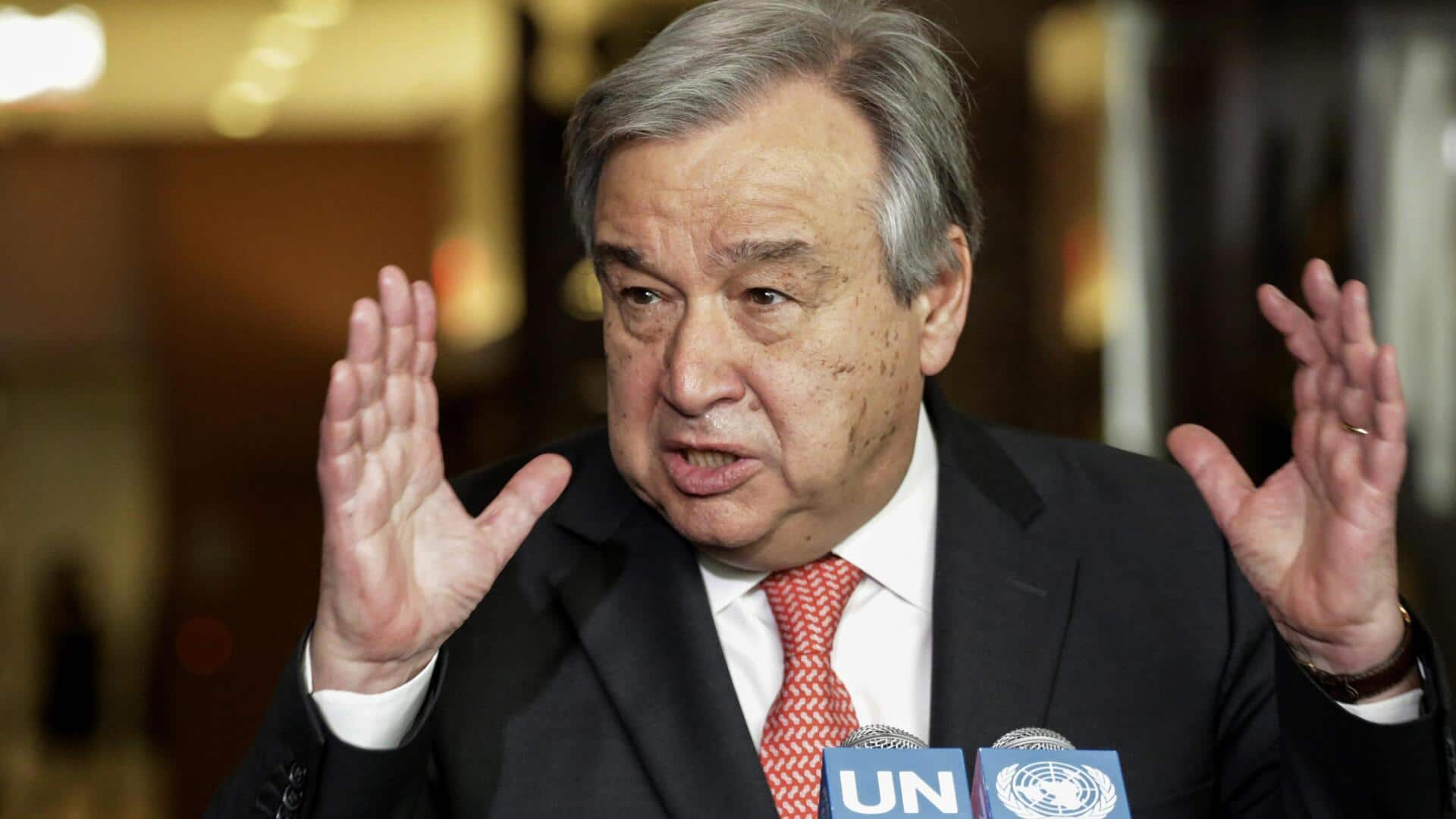
Climate change is a 'madness' we must stop: UN Secretary-General
What's the story
United Nations (UN) Secretary-General Antonio Guterres called for an end to the "madness" of climate change, as he observed the alarming effects of rapidly melting glaciers on his trip to Nepal's Mount Everest region. Guterres pointed out that in just over 30 years, Nepal has lost almost one-third of its ice, with glaciers melting at a rate 65% faster in the past decade compared to the one before.
Details
Glaciers provide fresh water supply to over a billion
"Glaciers are icy reservoirs—the ones here in the Himalayas supply fresh water to well over a billion people," Guterres said. "When they shrink, so do river flows." Himalayan and Hindu Kush glaciers provide water sources for approximately 240 million individuals in mountainous areas and an additional 1.65 billion people in South Asian and Southeast Asian river valleys. Glaciers contribute to 10 of the world's most vital river systems, like the Ganges, Indus, Yellow, Mekong, and Irrawaddy.
Effects
Effects of climate change and melting glaciers
According to scientists, climate change is causing glaciers to melt at an unprecedented rate, leaving communities vulnerable to unpredictable disasters. In the initial stages of climate change's impact, melting glaciers can lead to devastating floods. Guterres cautioned that if climate change is not addressed, "major Himalayan rivers like the Indus, the Ganges and Brahmaputra could have massively reduced flows."
Insights
'We must end the fossil fuel age'
"We must act now to protect people on the frontline, and to limit global temperature rise to 1.5 degrees, to avert the worst of climate chaos," Guterres said. "We must end the fossil fuel age," he said. The world's poorest countries, which have contributed minimally to fossil fuel emissions, are suffering the most from climate change's effects. "The world can't wait," Guterres said, advocating for decisive action to avert disaster.